Critical Emergencies Your Dog May Face That Need Immediate Attention

Stats say that one in three dogs will experience a health crisis in their lifetime. With prompt intervention, these situations can be managed to avoid mishaps. Knowing the symptoms and responses for common emergencies allows you to protect your beloved pet. Keep reading and learn how to be prepared and act swiftly.
Seizures

Seizures can strike dogs without warning, but staying composed and ensuring their surroundings are safe is vital. Don’t attempt to open your pooch’s mouth in case of a seizure. Instead, note how long it lasts and consult your veterinarian afterward to discuss possible causes and preventive measures.
Heatstroke

Dogs can overheat quickly in warm weather or confined spaces such as cars. Rapid panting, drooling, or fatigue are sure signs of heatstroke. If you notice your pet exhibits any of these behaviors, immediately move them to shade and provide cool water. Seek professional help if needed.
Bleeding
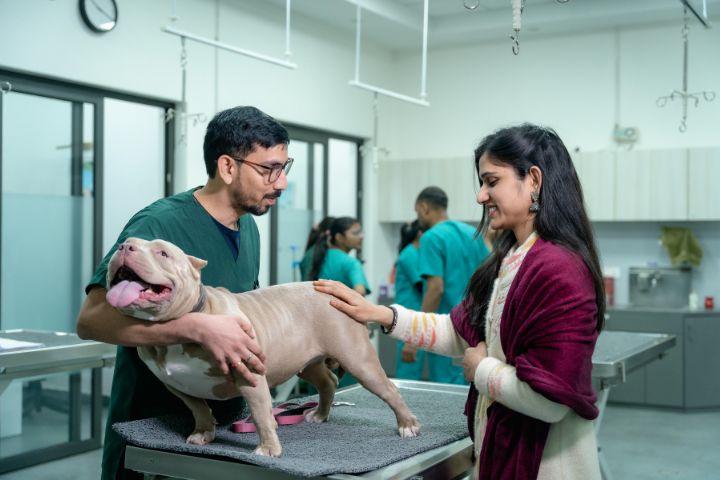
Injuries or trauma can cause either external or internal bleeding. Pressing a clean cloth or gauze against external wounds helps stem the blood flow. If it doesn’t ease up or if you suspect a hemorrhage, getting to a veterinary clinic right away is crucial to save your companion’s life.
Choking
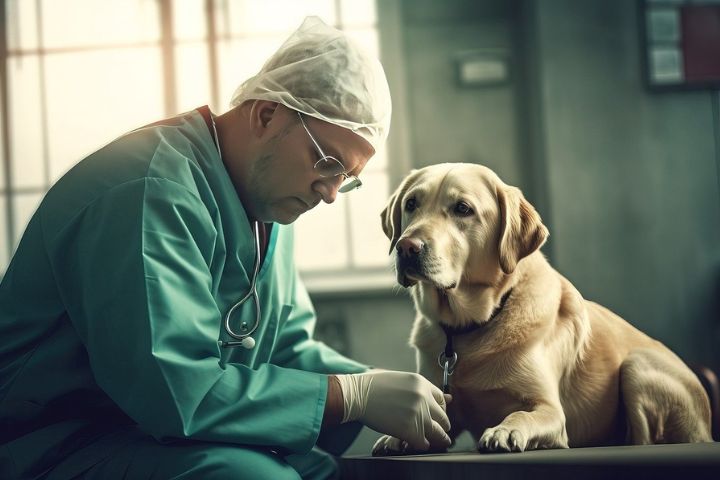
You can tell that your pet is struggling to breathe if they’re coughing, pawing at their mouth, or have blue-tinged gums. These are markers of choking caused by airway obstructions. If the blockage is visible, carefully try to remove it. Remember, difficulty in breathing is always serious—seek immediate help.
Accidental Ingestion Of Toxins

Dogs have a penchant for consuming things that they have no business eating. Household temptations include chocolates, medications, or cleaning products. Drooling, restlessness, or trembling can mean your pet has had something it shouldn’t have. If ingestion is suspected, call your veterinarian or a pet poison hotline right away.
Bloating/Volvulus
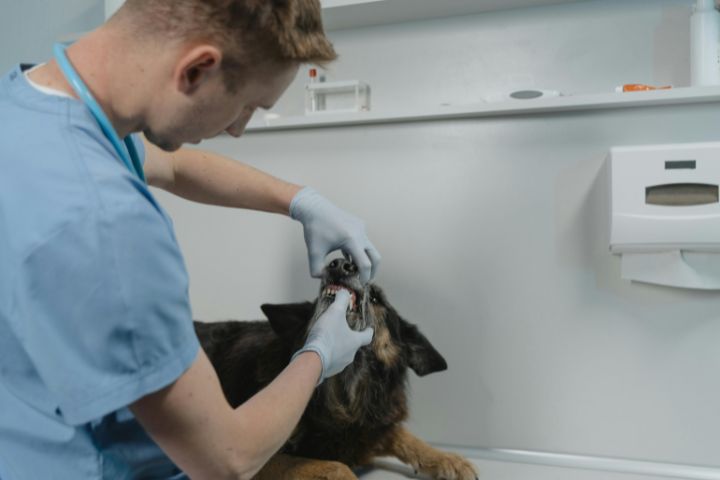
Gastric dilatation-volvulus (GDV) is a concerning issue where the stomach twists around itself, leading to an enlarged abdomen, unease, or dry heaving. Urgent veterinary intervention is required to untwist the stomach and stabilize an animal suffering from GDV. Timely action is the difference between life and death.
Straining To Eliminate Waste
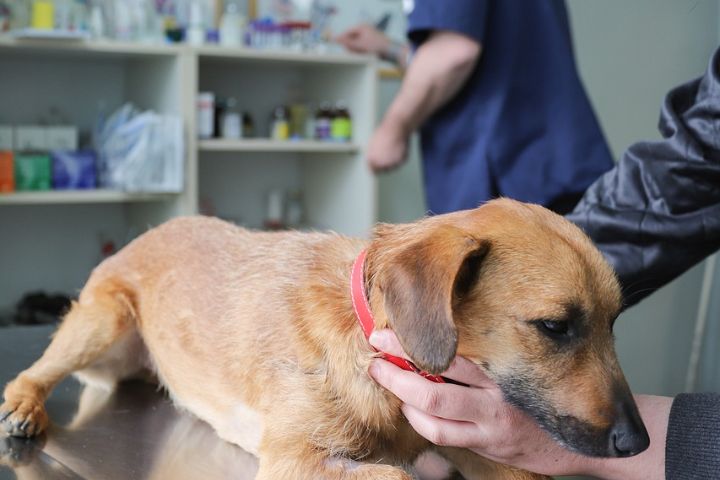
Struggling to urinate or defecate can hint at blockages, infections, or more severe problems like bladder stones. Look for behaviors such as frequent or failed attempts and hints of discomfort. To avert further complications, address these issues early by taking them to a veterinarian for a quick assessment.
Uncontrolled Vomiting
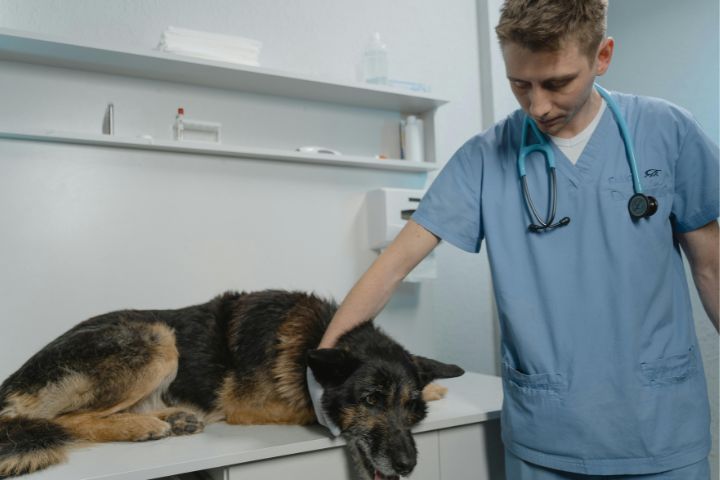
While occasional vomiting isn’t unusual, repeated bouts may indicate poisoning or an intestinal blockage, especially when coupled with lethargy or tinges of blood. In such a situation, ensure your dog stays hydrated and contact a clinic. An early diagnosis can prevent the problem from escalating further.
Loss Of Consciousness
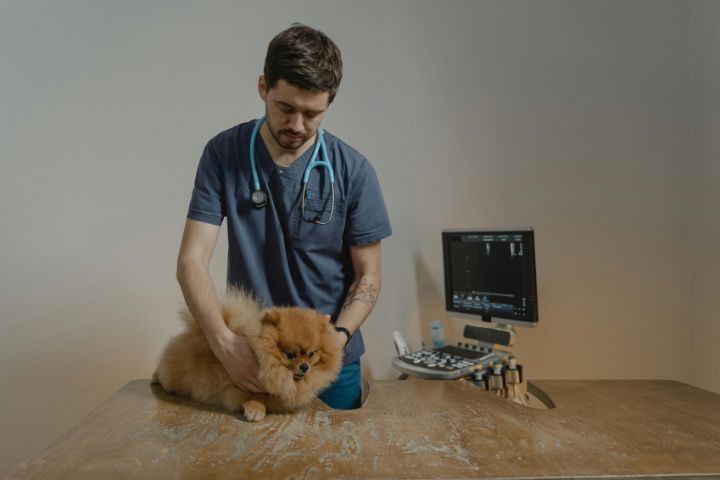
Cardiac issues, low blood sugar, or trauma may cause a sudden collapse or fainting episode in your pooch. In case of loss of consciousness, position them comfortably to check their breathing and pulse. If they don’t regain consciousness within a minute, rush them to a veterinary hospital for treatment.
Fractures

Look for a fracture if you notice limping, swelling, or visible deformities of your pet’s limb. Upon finding the affected area, stabilize the limb with a soft split or padding and get them to a veterinarian. Quick action can prevent further injury and spare your dog much pain.
Trauma To The Eye

These injuries occur from scratches, foreign objects, or irritants damaging the eye. If your dog is squinting, tearing up, or experiencing swelling around the eye, stop them from rubbing the affected area and arrange for a medical consultation as soon as possible. This will stave off infection or vision problems.
Avoidance Of Liquids
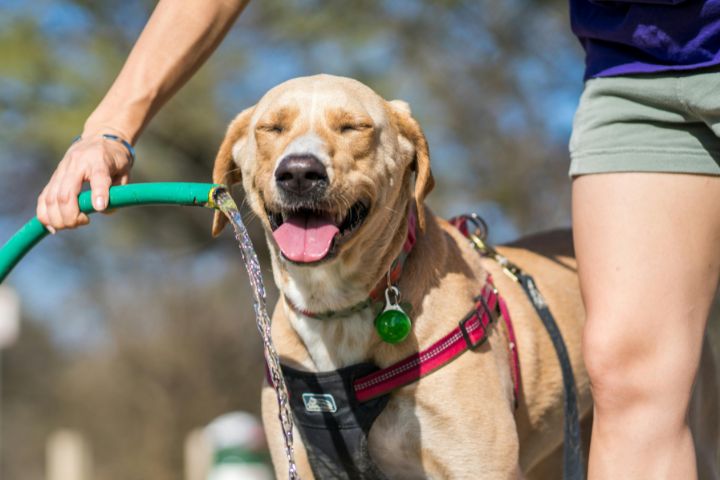
A refusal or avoidance of accessible water is a cause for concern about your pet’s health. If dehydration escalates, it can quickly lead to further complications and, ultimately, organ failure. If your dog has dry gums or sunken eyes, attempt to encourage fluid intake and consult a vet.
Allergic Reactions
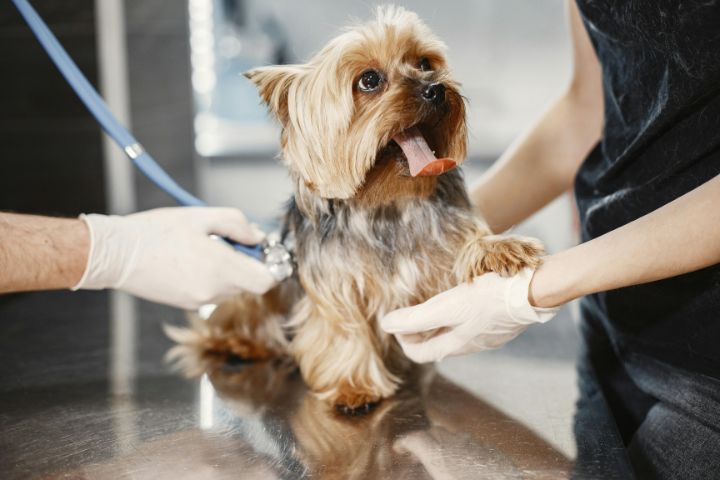
Allergic reactions can manifest in dogs as swelling, hives, or excessive itching. Some reactions can escalate to anaphylaxis, which is a life-threatening condition. Keep antihistamines on hand and contact your veterinarian immediately if you notice severe or worsening symptoms.
Difficulty Breathing

Labored or rapid breathing requires prompt veterinary attention as it can indicate anything from choking to heart or lung problems. If you find your pet wheezing, coughing, or showing blue gums, stay calm, minimize their stress, and seek emergency care without delay.
Obstetric Emergencies
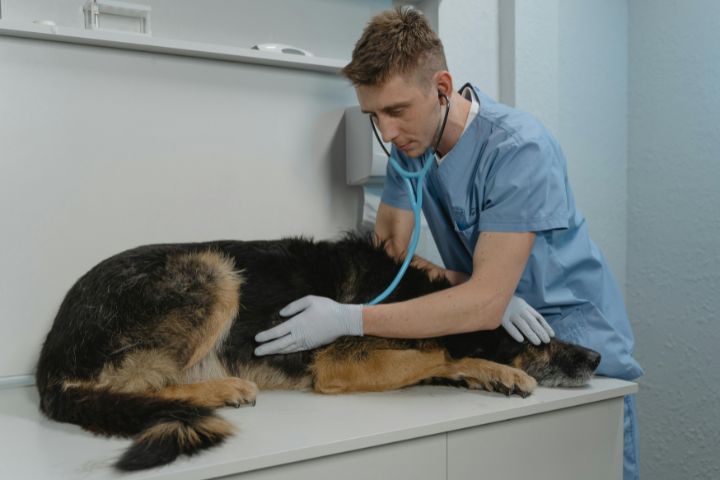
Complications during labor, like a puppy stuck in the birth canal or prolonged contractions without delivery, can endanger both the mother and her pups. If your dog is giving birth at home, educate yourself on signs of distress, such as excessive straining or fatigue, and have the vet’s number ready.





